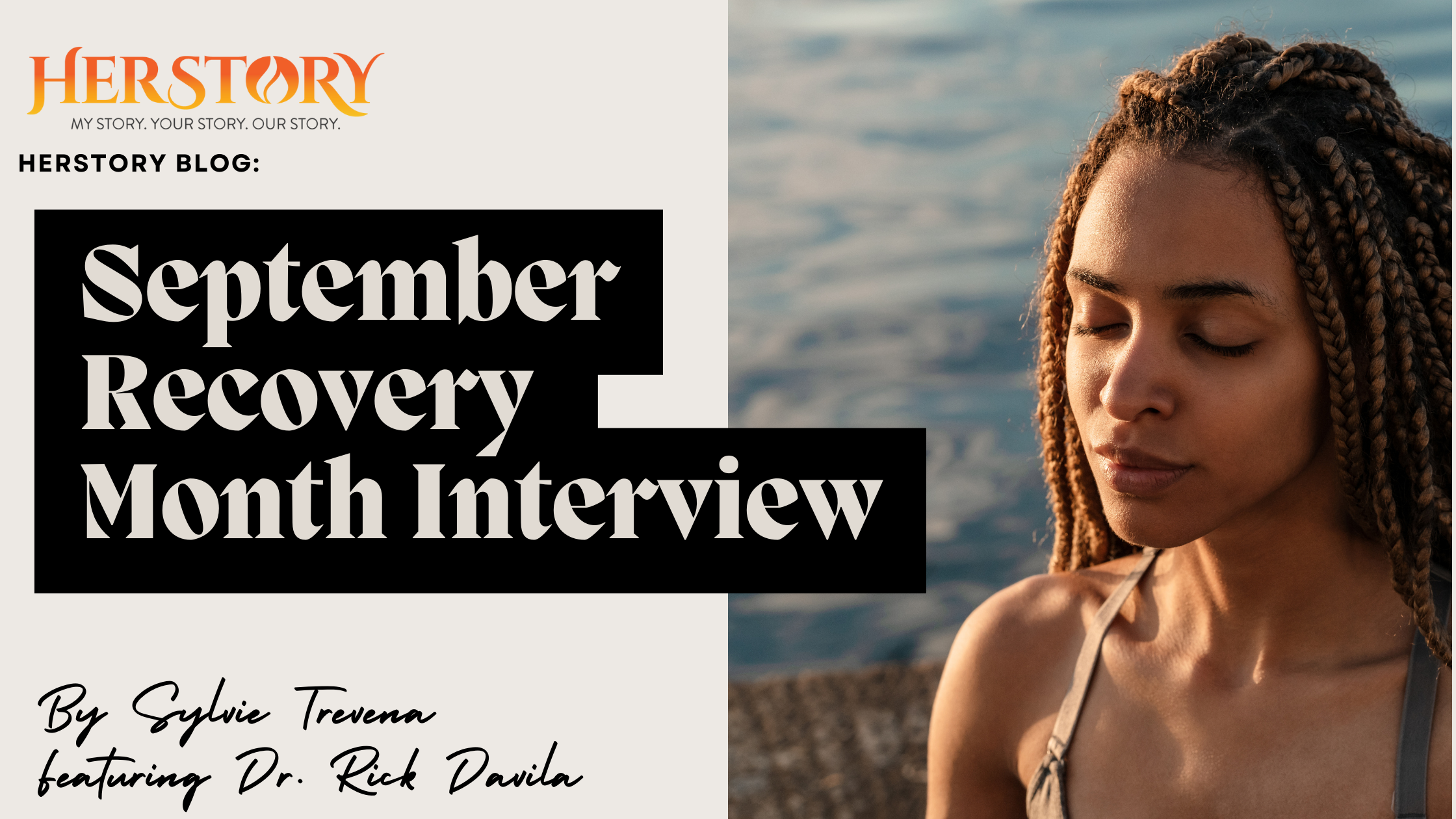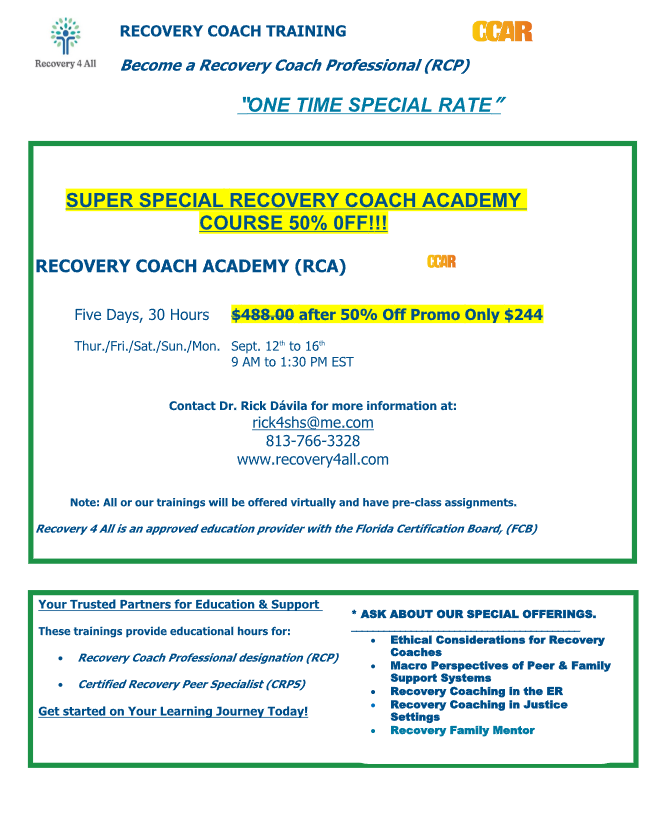
04 Sep September Recovery Month Interview and Feature – Dr. Rick Davila
Since 1989, Recovery Month has been nationally observed each September. This month is dedicated to support recovery practices and new evidence-based treatments. Without our strong recovery communities, including dedicated service providers, recovery would not be possible. Today, I am speaking to Dr. Rick Davila, a leader in the recovery community here in Florida.
Thank you for taking the time to talk to us about what you do, Dr. Davila. My first question as it is September and National Recovery Month, is to ask you what recovery means to you?
I am a person in recovery and have been for the last 57 years. I have been able to cope with life on life’s terms in a caring way without the use of substances or other active addictions. I believe you are in recovery when you say you are. Recovery is different for each individual. There are multiple pathways of recovery meaning that there is NA, AA, Smart Recovery, Celebrate Recovery, Dharma Recovery to name a few.
Your organization, Recovery 4 All, is dedicated to supporting recovery from drugs, alcohol, gambling and other addictions through education, guidance, and support for each person in recovery. How did you start Recovery 4 All?
There appears to be a focus on treatment or acute care only. I wanted to see also an emphasis on recovery support. I saw the need to educate people about supporting on going recovery after acute care. Especially to individuals, families, and communities to provide recovery support for all types of addictions and mental health. Recovery 4 All is providing multiple recovery support services to this population including direct Recovery Coaching and training to become a Recovery Coach Professional.
I love in the Recovery 4 All mission statement where is says, “We are totally and unconditionally committed to promoting supportive long-term recovery for individuals, families, and advocates-treating people with dignity and respect.” I feel that the dignity and respect part is hugely important; could you tell us why that is in your mission statement?
In our service delivery, we have an assets-based model rather than a deficit-based model. I belie

ve in a strength-based approach instead of focusing on the problem. We focus on strengths. We would rather ask what is good with you rather than what’s wrong with you. There is so much stigma and labeling in addiction. We provide recovery services with dignity and respect by putting more focus on what is right verses what is wrong.
If you were talking to someone who was in the contemplation stage of recovery; not actively trying to make changes but thinking about it, what could you do to support their recovery journey?
I would remind this person that there are many pathways to recovery. You are already ok and able to take the next steps. Let’s move forward.
Outside of your amazing work in the recovery field, what are some of your hobbies?
I am lucky to have a large, blended family including 17 grandkids and 11 great grands, that keeps me pretty busy. I devote time to my own recovery. I enjoy audio books right now, and most are action adventure or mystery because they offer something fictional to empty out my head. I read books too and also play word games on my phone.
If you could tell someone struggling with addiction one thing, what advice would you give them?
I would say that there are many pathways of recovery to try. I would tell them that they come with strengths and experience. This is not the end of the world (addiction). You have worth. Your experience counts and let’s expand on that experience.
|

No Comments